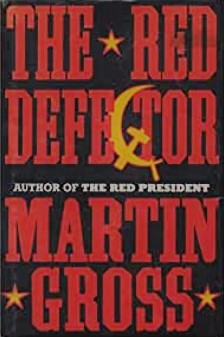
Russia in Fiction has a thing about novels published at key junctures in Russian history and set in that same time. (Just search this blog for ‘Chernenko’ to get an insight into how thriller writers saw the Soviet Union in 1984.)
Writing about the Soviet Union in 1991 took matters to a whole new level. In fiction and non-fiction, a good number of authors wrote about the Soviet future only for there to be no Soviet Union by the time their books were published. As a French language summary of The Red Defector put it:

Continue reading


